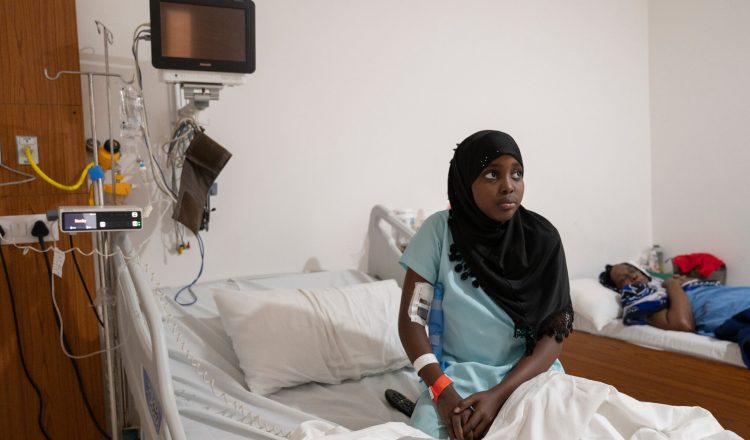The World Health Organization (WHO) in the African Region has released groundbreaking new guidance aimed at addressing the escalating threat of sickle cell disease across the continent. These comprehensive technical documents provide actionable strategies designed to enhance quality of care, improve accessibility to treatment, and elevate overall health outcomes for those affected by the disease.
The new guidance documents—titled “Guidance Framework for Sickle Cell Disease Management” and “Harmonized Guide for Sickle Cell Disease Management in Africa”—offer countries strategic direction for policies, comprehensive care plans, and advocacy efforts. Collectively known as the WHO SICKLE Package of Interventions for Sickle Cell Disease Management, these resources promote a holistic and integrated approach to the disease, emphasizing necessary interventions, patient and community empowerment, and the promotion of education and advocacy.
Dr. Benido Impouma, Director of the Universal Health Coverage/Communicable & Noncommunicable Diseases Programme at WHO Africa, stated, “As we continue the fight against sickle cell disease, we are confident that this guidance for countries will serve as a valuable new addition to their toolkit, specifically because the guidance is tailored to the African reality, where a multi-faceted approach is key.”
Despite global advancements in sickle cell disease treatment, significant challenges remain in ensuring equitable access to these treatments in low- and middle-income countries, particularly in Africa. Annually, an estimated 240,000 children are born with sickle cell disease on the continent, with up to 80% succumbing to severe infections or acute chest syndrome before the age of five, the highest rate of sickle cell disease-related childhood deaths worldwide.
The WHO SICKLE Package, developed with financial support from the Government of Monaco and other partners, integrates the latest research, best practices, and innovative approaches to sickle cell disease management. It is a vital resource for healthcare providers, policymakers, and advocates working to combat this disease.
Since 2010, WHO Africa has been at the forefront of efforts to fight sickle cell disease. Significant progress includes the adoption of accurate and inexpensive point-of-care screening and the use of Transcranial Doppler Ultrasound screening in several countries. Additionally, hydroxyurea, an effective medication for preventing pain episodes and reducing healthcare visits, is now available in 11 countries.
However, major challenges persist, including limited healthcare infrastructure, lack of awareness and education, inadequate access to comprehensive care, restricted newborn screening, poor research and development, and limited access to advanced treatments.
- Tags: African region, Benido Impouma, children, comprehensive care, disease management, health outcomes, healthcare, healthcare infrastructure, hydroxyurea, new guidance, patient empowerment, quality of care, sickle cell disease, Transcranial Doppler Ultrasound, treatment access, WHO Africa, WHO SICKLE Package





